Petrochemical Polyamide6 Polyolefins 23-12-2020 - Arhive
Petrochemical Polyamide6 Polyolefins
Crude Oil Prices Trend

-High-melt flow scratch resistant TPE targets large automotive interior applications
“Dryflex HiF TPE” skin with PP carrier backfoamed with PU (Photo: Hexpol TPE)
Swedish compounder Hexpol TPE (Malmö; www.hexpoltpe.com) introduced “Dryflex HiF”, a family of high-melt flow scratch resistant thermoplastic elastomer-styrene-ethylene-butadiene-styrene (TPE-SEBS) materials developed for injection moulding of large-scale interior automotive parts such as instrument panels, door trims and skins. Dryflex HiF was developed in collaboration with US speciality polymers company Kraton (Houston, Texas; www.kraton.com) based on Kraton’s “IMSS” technology.
The surface performance of Dryflex HiF meets Erichsen scratch resistance and Crock abrasion testing values, making the materials viable for automotive applications with higher abrasion, scratch and heat-resistance requirements. Injection moulding TPE is a faster process than traditional polyurethane coating, PVC slush moulding or TPO foil processes used in these applications, and the TPE is recyclable.
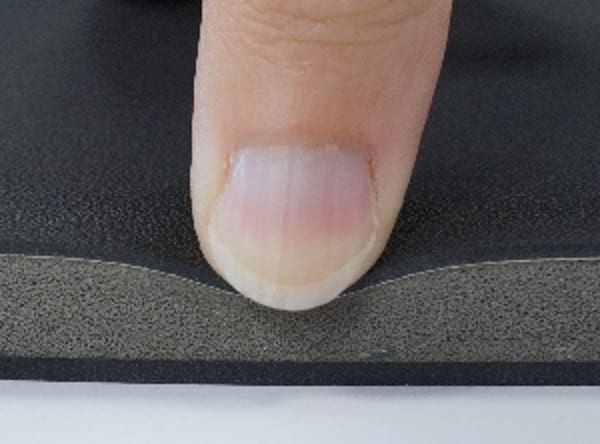
-Europe R-PET flake market surprised by strong January demand
Matt Tudball, senior editor, Recycling, discusses the European recycled polyethylene terephthalate (R-PET) market, including:
December monthly price settlement Petrochemical Polyamide6 Polyolefins
January sentiment turns increasingly bullish
Impact on post-consumer bottles, flake and food-grade pellets
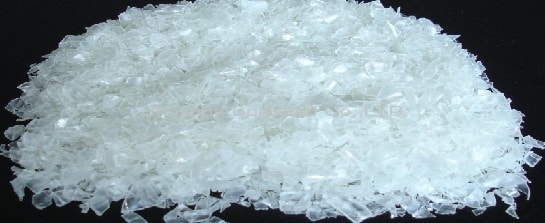
Neste successfully processed 400 tons of liquefied plastic waste at its refinery in Finland this fall, an amount corresponding to the annual amount of plastic waste generated by 20,000 average European citizens*. This was the first time Neste processed liquefied waste plastic at an industrial scale. During the run, packaging and mixed waste plastics were upgraded into high-quality recycled feedstock for petrochemical industry uses, e.g. for the production of new plastics. Petrochemical Polyamide6 Polyolefins
The processing run marks a very important milestone with regards to Neste’s strategic aims of driving circular economy and replacing crude oil use at its own refineries. Neste’s target is to process over 1 million tons of waste plastic annually from 2030 onwards.
Preparations for the next processing runs ongoing
Neste aims to increase the volumes of liquefied waste plastic processing gradually to continue learning and developing the value chains and processing technologies. Next processing runs at Neste’s fossil oil refinery in Porvoo are already being prepared for 2021.
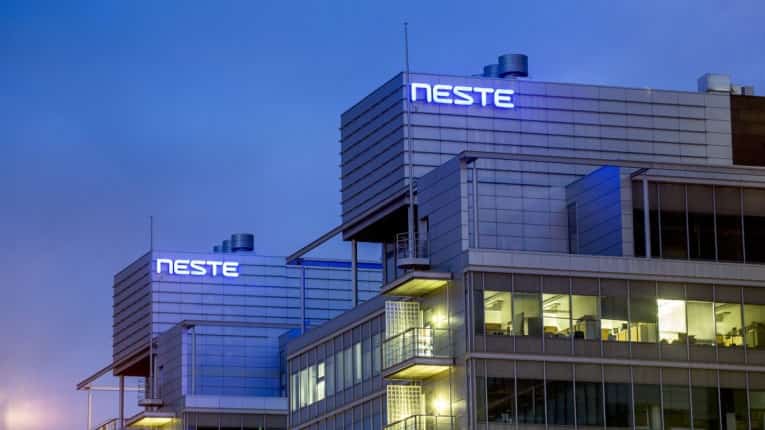
-Sustainability and recycling set to dominate 2021 agenda
The events of this year may have been unpredictable but 2021 offers no improved certainty given the continuing effects of the coronavirus pandemic and onset of a global economic downturn. Petrochemical Polyamide6 Polyolefins
Sustainability may have slipped in the focus, if not agenda, of consumers to corporates alike due to other priorities, but it is set to return with fervour next year.
There had been an expectation that demand from the packaging sector would grow sharply in 2020 from recycled high density polyethylene (R-HDPE) and recycled polypropylene (R-PP) amid the growing focus on sustainability, but much of this growth was curtailed by the impact of coronavirus.
Backlogs at testing facilities, concerns about entering new supply chains amid the pandemic, and workforce and financial pressures led firms to concentrate on core products.

-Dutch Arlanxeo: ‘85% less CO2 emissions thanks to rubber from sugar cane’
Chemical engineers at Arlanxeo in the Dutch city of Geleen have proven that the rubber production based on sugar cane has a much lower CO2 footprint than that of petroleum-based rubber. Petrochemical Polyamide6 Polyolefins
One of the most innovative gems on the Chemelot Campus in the Dutch town of Geleen is perhaps Arlanxeo, a subsidiary of the world’s largest oil company, Saudi Aramco. Which means it is a throwback of the old fossil fuel industry. But at the same time, it is one of the few producers of sustainable rubber that uses far fewer petroleum-based raw materials.
But what exactly is sustainable rubber? -That’s a question for Herman Dikland, a chemical engineer and head of innovation at Arlanxeo. “It’s not the case that this rubber is biodegradable,” says Dikland. “Try to imagine if a rubber car tire was biodegradable, then it would crumble under certain circumstances. Whereas the tire has to last a long time. When we talk about sustainable rubber, we are talking, for example, about synthetic rubber such as EPDM (ethylene propylene diene monomer rubber), whose main raw material, ethylene, is not extracted from naphtha (a product processed from crude oil) but rather from bioethanol.”
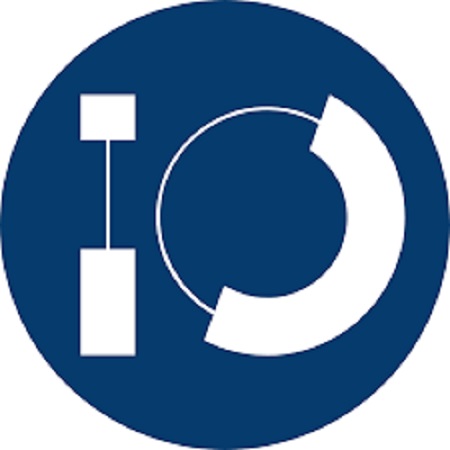
-The Basics of Advanced Recycling
- Advanced recycling is a collection of technologies that enable a new way of plastic recycling.
- It is praised as a promising solution to drastically increase the recycling rate of plastic waste and solve the plastic packaging waste problem.
- Investments in advanced recycling are increasing and new coalitions are being formed throughout the value chain
- The development of advanced recycling is at a very early stage and will take several more years to mature. There are still questions around legislation, energy consumption, environmental impact and financial viability that constitute obstacles. Petrochemical Polyamide6 Polyolefins
Interest and investments in advanced, or chemical, recycling are increasing worldwide. This group of circular technologies should help solve the problems with plastic packaging waste. In a series of specials, we discuss the key aspects of advanced recycling.
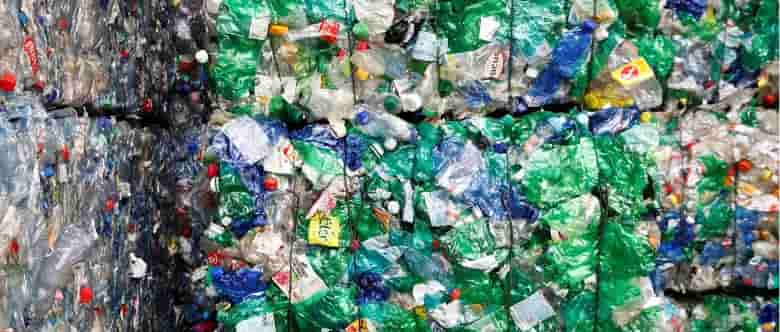
-STOROPACK presents Styropor Ccycled, the first 100% recycled EPS from mixed and contaminated waste
As long-time customers and partners of Basf, Storopack has been chosen to exclusively test the innovative raw material Styropor Ccycled in the field of polystyrene packaging. Storopack offers products made with the new Styropor Ccycled material, originating for the first time from the chemical recycling of mixed waste from the yellow container and suitable for food contact. Petrochemical Polyamide6 Polyolefins
The innovative ChemCycling process makes it possible to recycle mixed or contaminated plastics, previously impossible to recycle. The resulting plastic, Styropor Ccycled, provides the same exceptional packaging and insulation properties as conventional EPS.
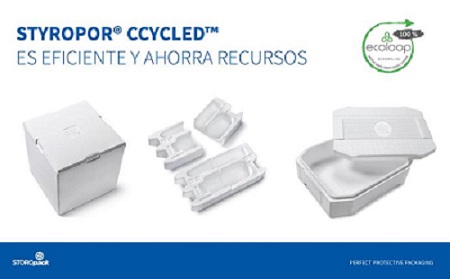
-Repsol to supply Berry circular polyolefins
Repsol’s polyolefins, obtained through advanced recycling methods, will help Berry to procure food-grade polypropylene packaging.
Berry Global Group, Evansville, Indiana, has announced that Madrid-based Repsol, its longtime supplier, will supply it with circular resins.
The Spanish multienergy global company will supply Berry with International Sustainability and Carbon Certification (ISCC) Plus-certified circular polyolefins from its Repsol Reciclex range. Petrochemical Polyamide6 Polyolefins
According to a news release from Berry Global, these polyolefins are obtained by advanced recycling, enabled by the adoption of new chemical recycling technologies, of postconsumer plastic scrap not suitable for traditional recycling.

-Starlinger doubles recycling plant production capacity
Austrian equipment maker builds German facility to make its recoSTAR plastics recycling systems.
Austria-based Starlinger & Co. Gesellschaft mbH. says it has opened a new facility in Germany that has allowed it to double its capacity to make plastics recycling systems.
Starlinger says it has been producing polyethylene terephthalate (PET) plastics recycling systems in the recoSTAR series at its new site in Schwerin, Germany, since August, which has allowed it to quickly increase its capacity. Petrochemical Polyamide6 Polyolefins
“In the past two years, our division Starlinger Recycling Technology has seen strong demand for recycling systems,” says Angelika Huemer, CEO and managing partner of Starlinger.
“This field of activity with an annual turnover of 130 million euros ($159 million) constitutes an important mainstay for the future of Starlinger–a mainstay that we intend to build on.”
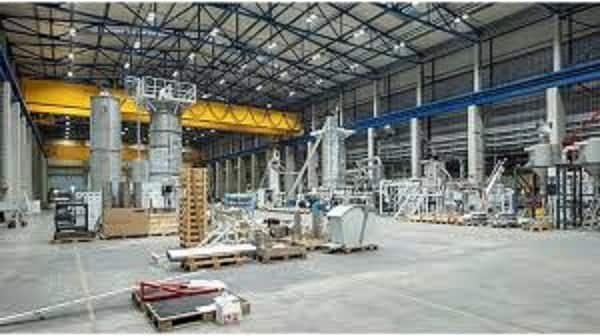
-ITMA ASIA + CITME 2020 on track for next June showing
With leading textile machinery manufacturers affirming their support, preparations for the seventh edition of ITMA ASIA + CITME are underway as scheduled, according to the organisers. Following the completion of stand allocation exercise, some 1,650 exhibitors have started to receive their certificate of admission and stand details from December 14, 2020. Petrochemical Polyamide6 Polyolefins
Despite the ongoing global coronavirus pandemic, the combined show continues to receive the support of exhibitors from 25 countries, including the world’s most established textile machinery brand names.
Among the major exhibitors allocated space are: CHTC, Danis Makina, Electro-Jet, Eton Systems, Fong’s, Groz-Beckert, Itema, Jeanologia, Karl Mayer, MS Printing Solutions, Muratec, Oerlikon Barmag, Picanol, Reggiani Macchine, Rieter, SDC Enterprises, Santoni, Saurer, Savio, Shima Seiki, Staubli, Toyota, Tsudakoma, Vandewiele and Vanwyk.
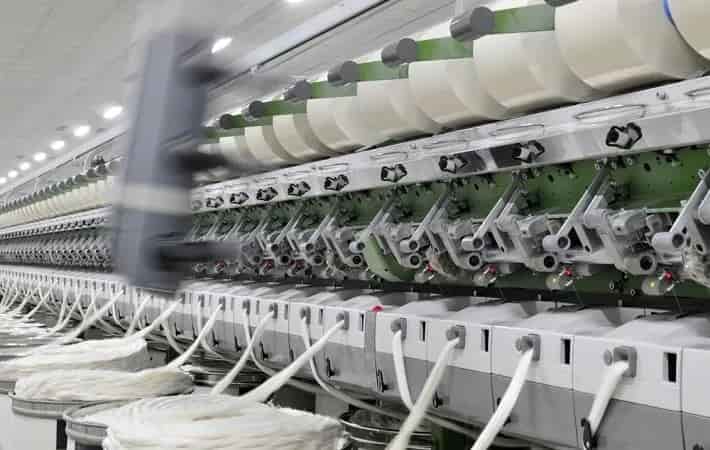
Petrochemical Polyamide6 Polyolefins
